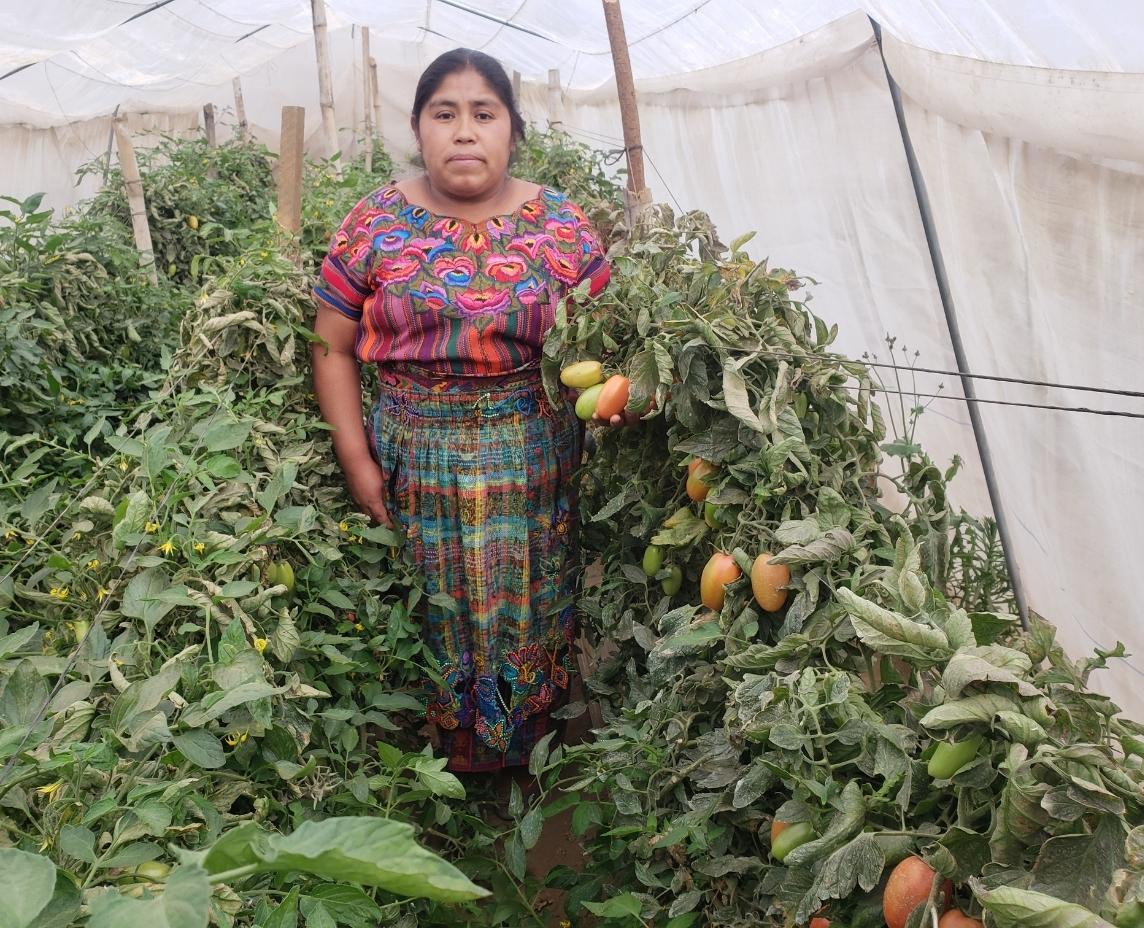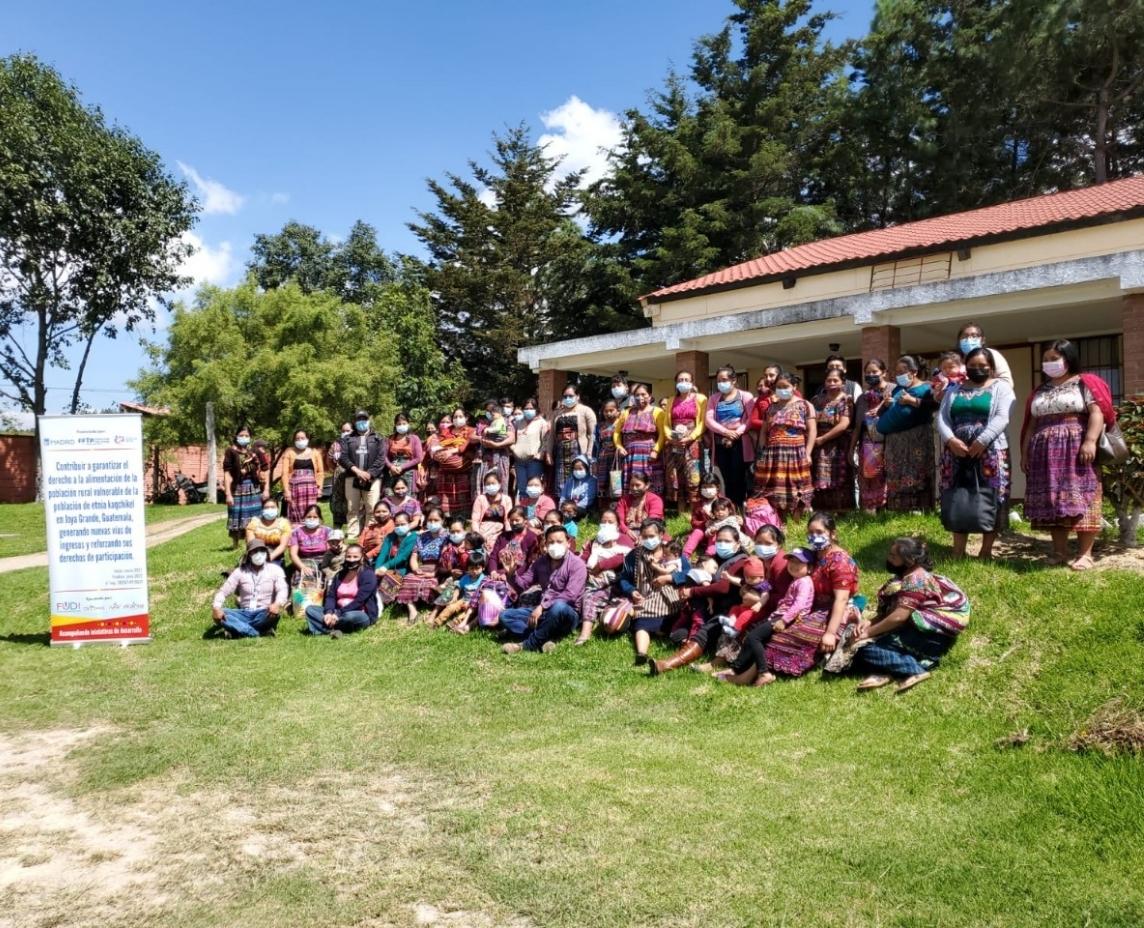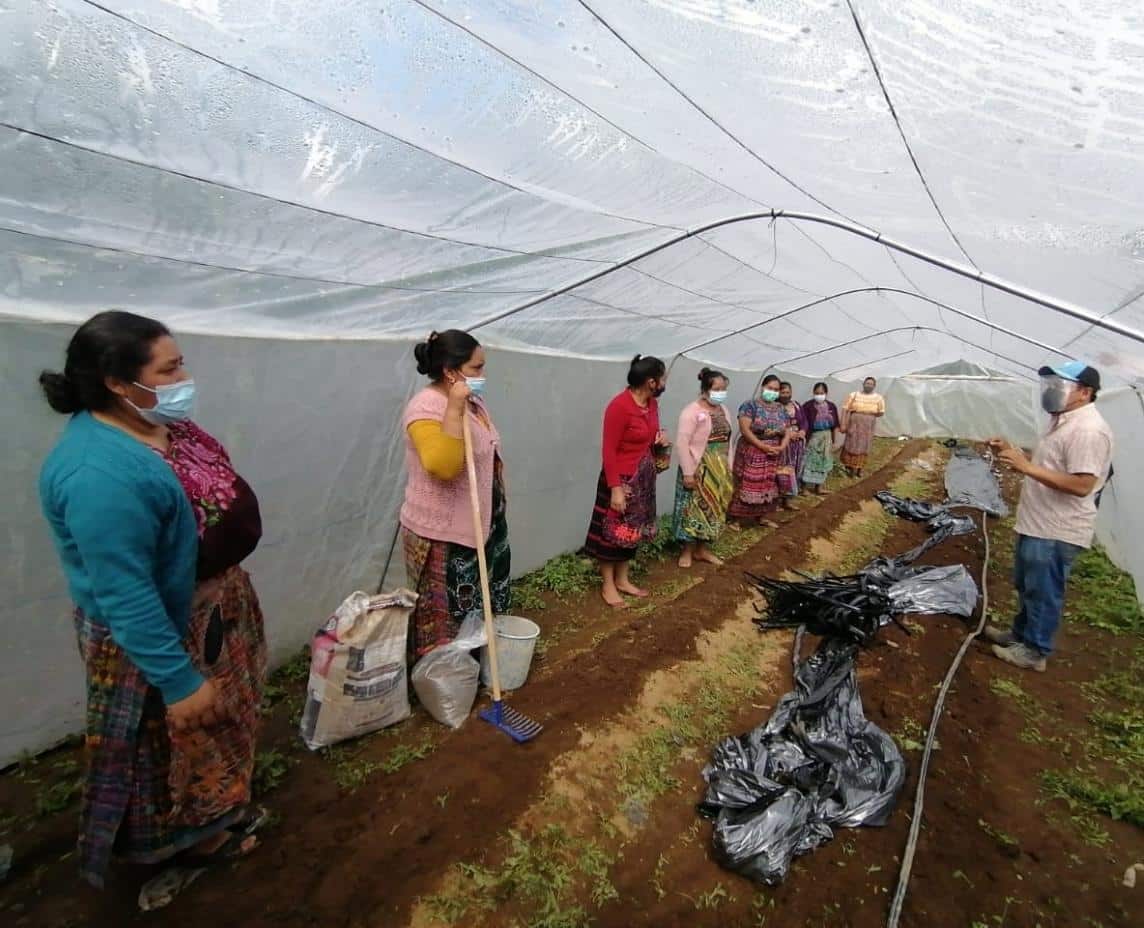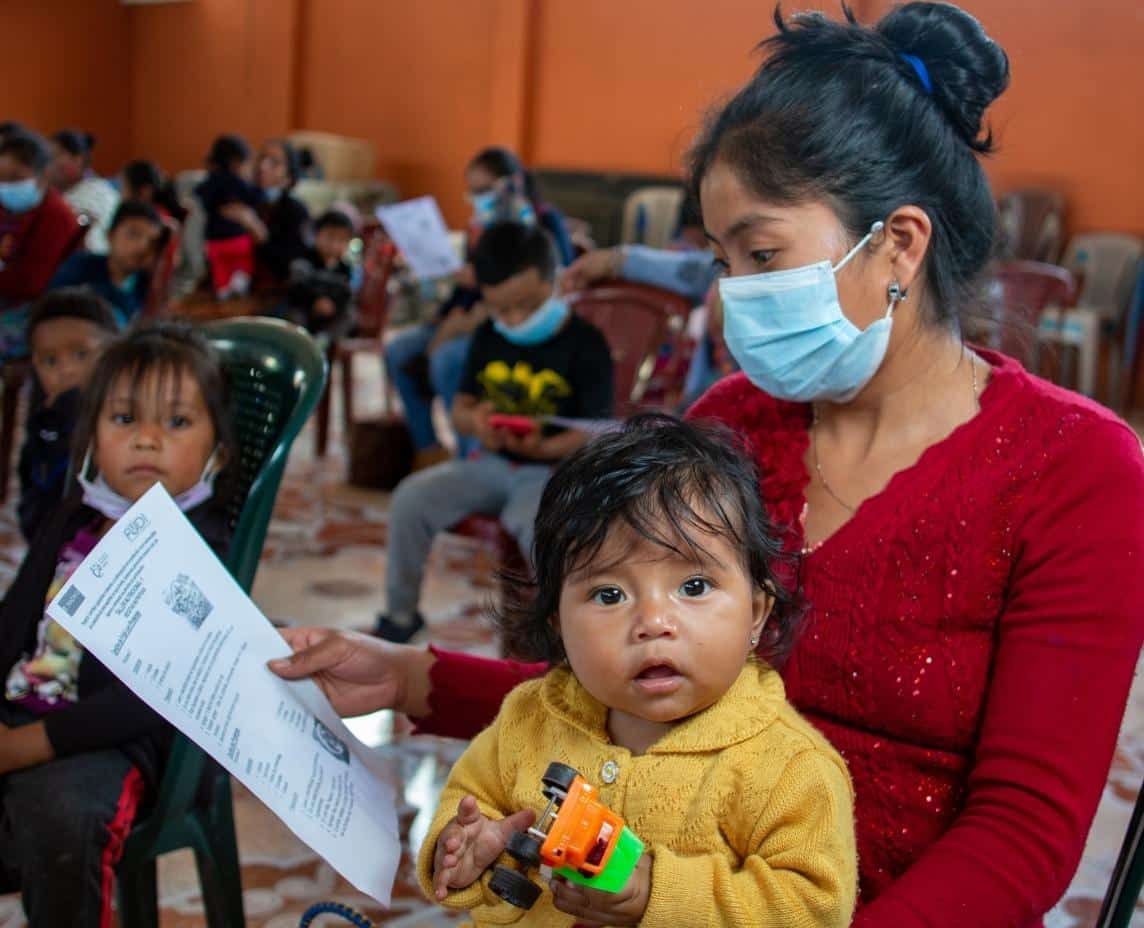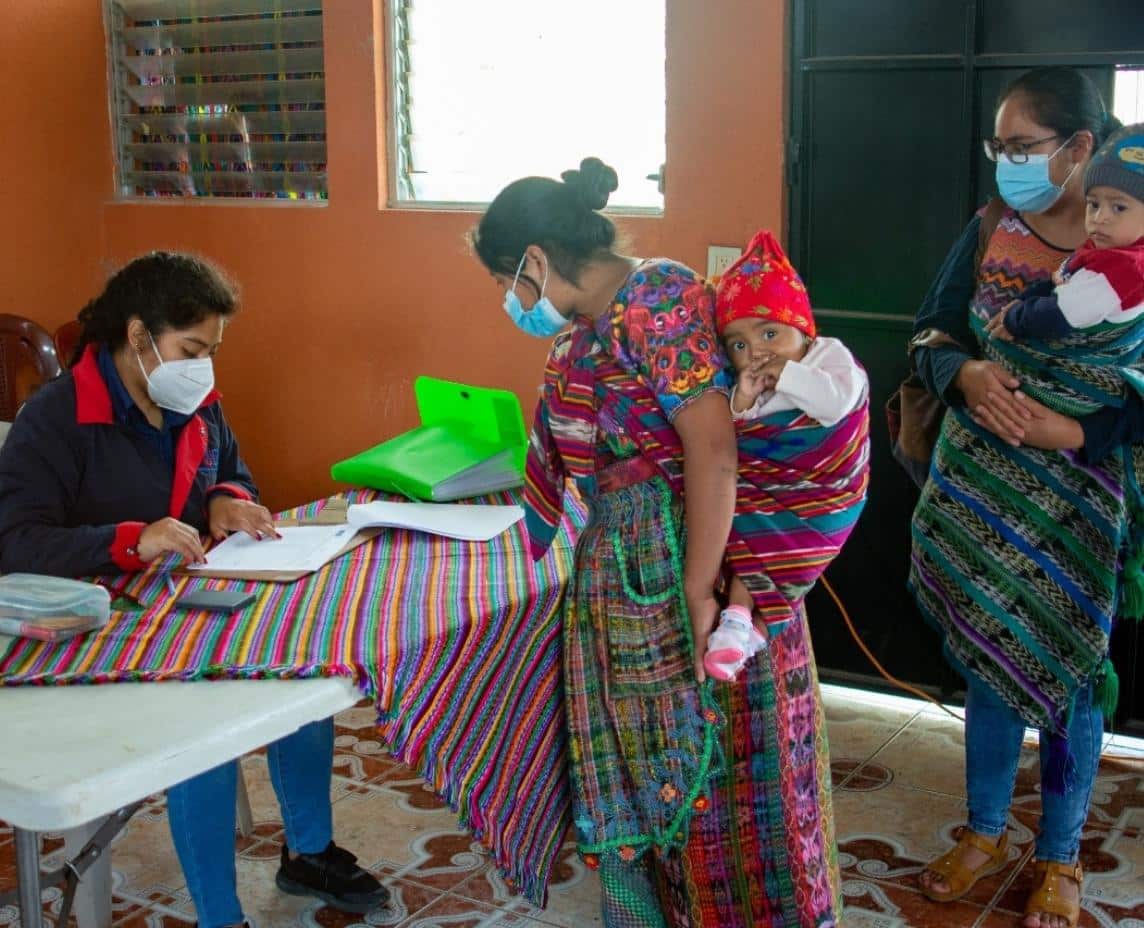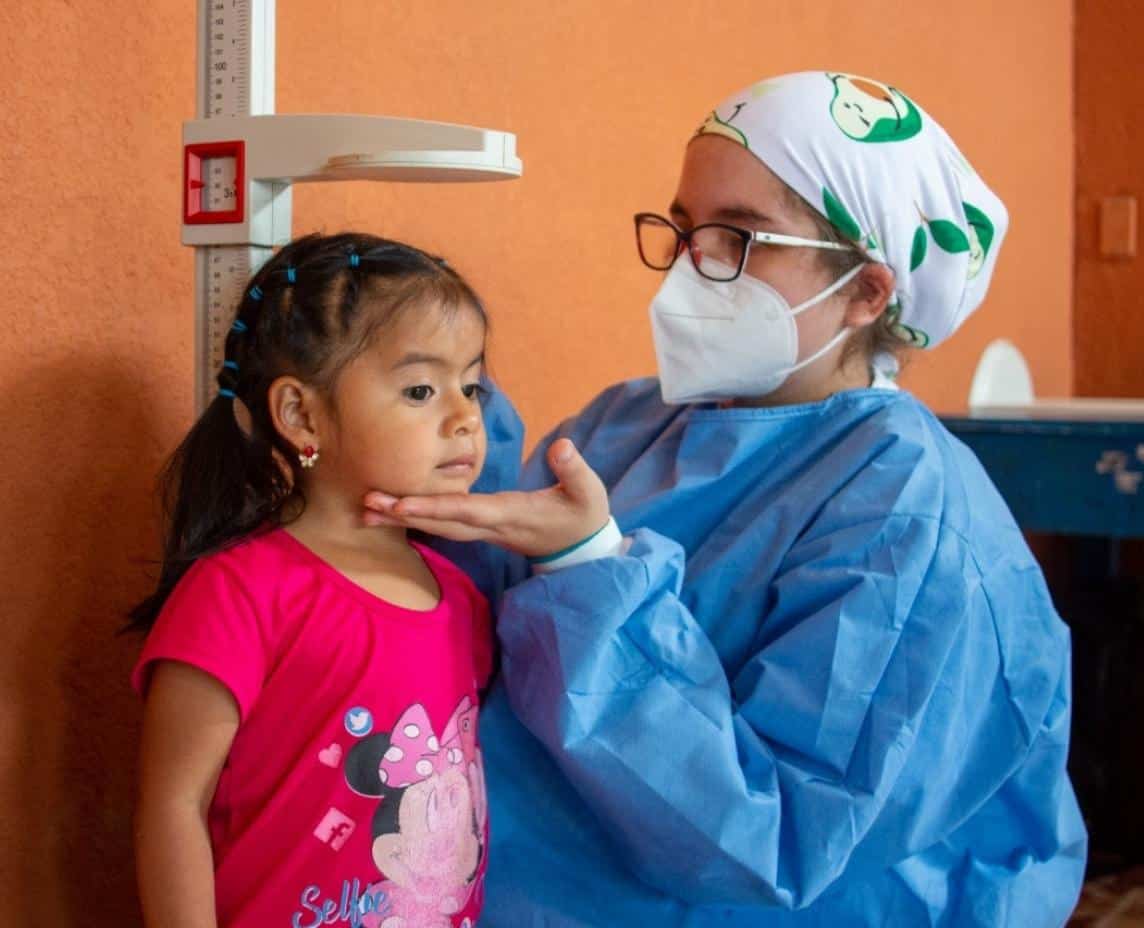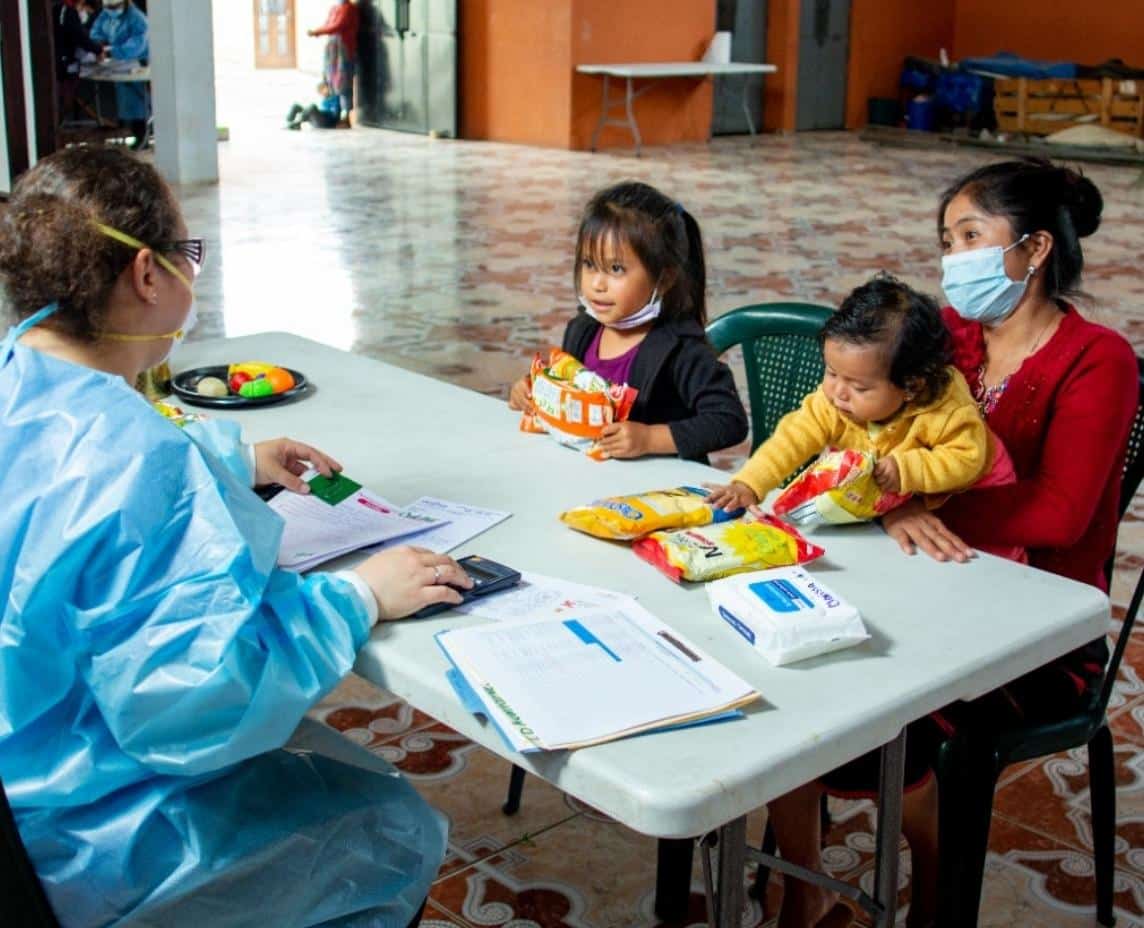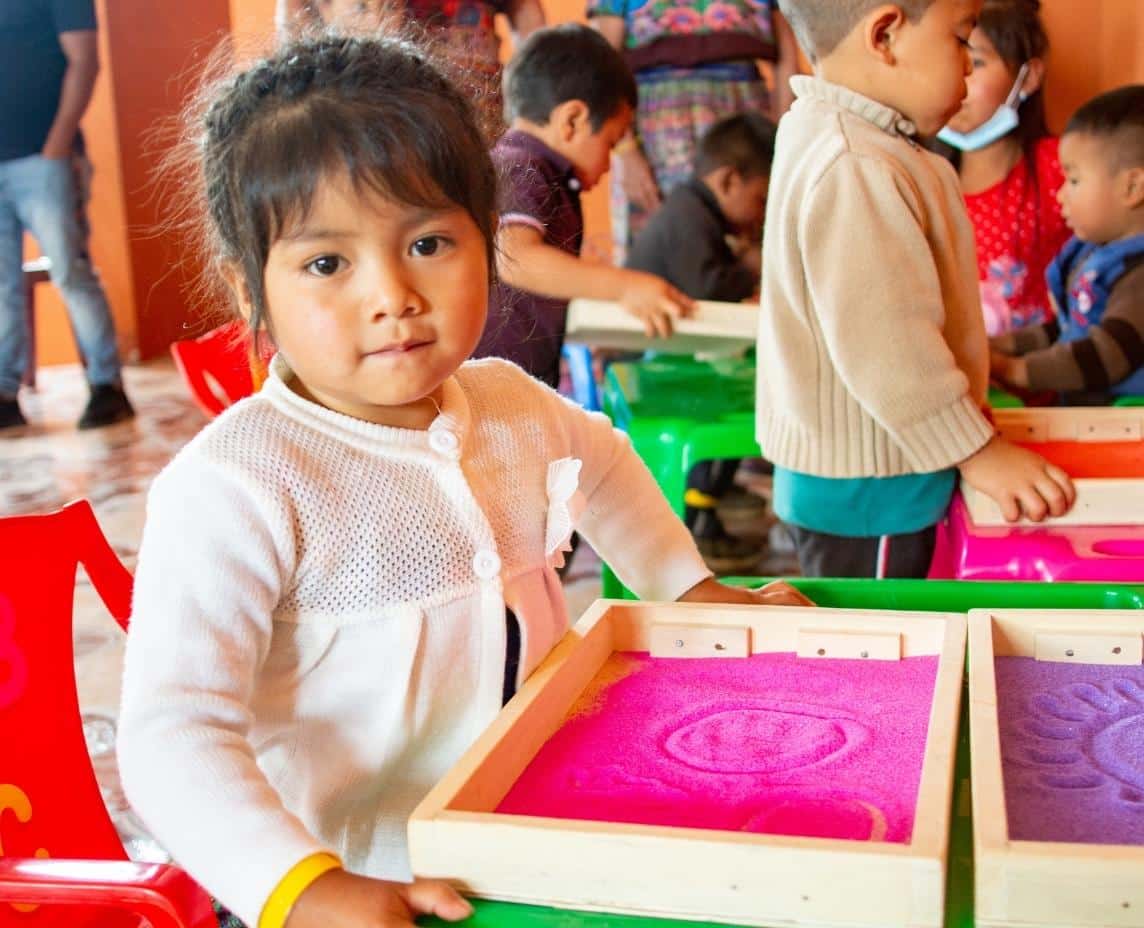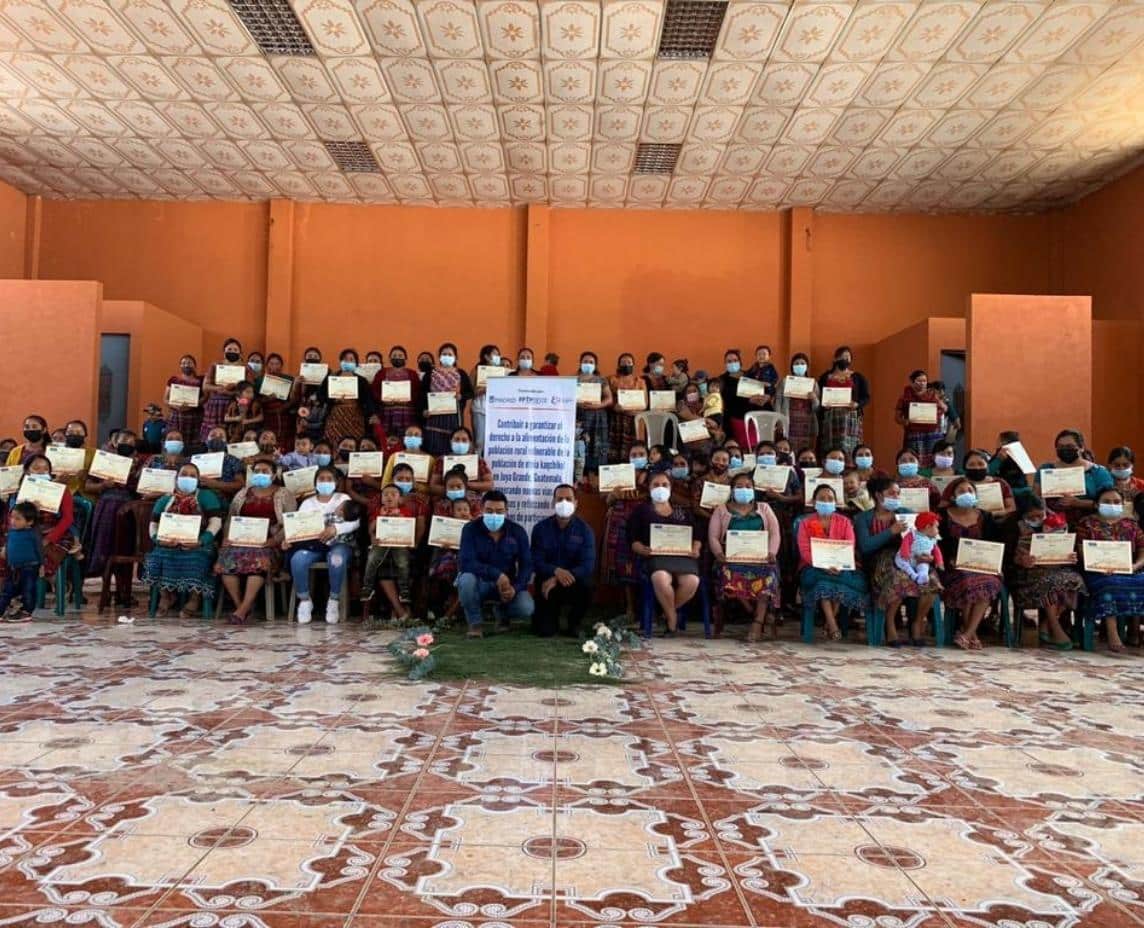Malnutrition is a problem that seriously affects rural communities in Guatemala.
To deal with it, the Social Promotion Foundation, in consortium with the Foundation for Integral Development (FUDI) and Food for the Poor, and with funding from the City of Madrid, has developed a 12-month project with a multiple approach aimed at the vulnerable population of the Kaqchikel ethnic group in Joya Grande, especially girls and boys under 5 years of age.
Thus, activities have been carried out to increase the availability of food, working jointly with women and men and with the MAGA (Ministry of Agriculture and Food), whose participation has contributed to the sustainability of the project. Through training in good agricultural practices, in the preparation of pylons and in the three value chains -vegetables, oyster-mushrooms and the poultry project (chickens and eggs)-, the autonomy of the population has been promoted for their access to rich foods in nutrients, in addition to promoting savings by not having to buy these products and, therefore, being able to allocate their resources to other expenses such as health or education. On the other hand, the sale of surpluses has contributed to the generation of income, which has increased by 25% among the 130 participating families.
Work has also been done on the nutritional improvement of the child population, through these lines of action: medical-nutritional workshops (with anthropometric evaluations), vitamin supplements and early stimulation, obtaining positive achievements. All this, with a very close accompaniment through home visits that have also followed up on the promotion of good hygienic-sanitary practices. After these measures, 67% of children under 5 years of age have improved their nutritional status, exceeding the expected results.
The multiple approach of the project has been reinforced with the creation of 6 Boards of Directors formed by the women of the community, contributing to their empowerment and equality. Through them, they have become spokespersons and decision makers of the aspects related to the activities carried out, making their contribution and active participation visible to the community. The community and assembly part has also been very relevant in the training given through workshops, with the support of the Ombudsman for Indigenous Women.





